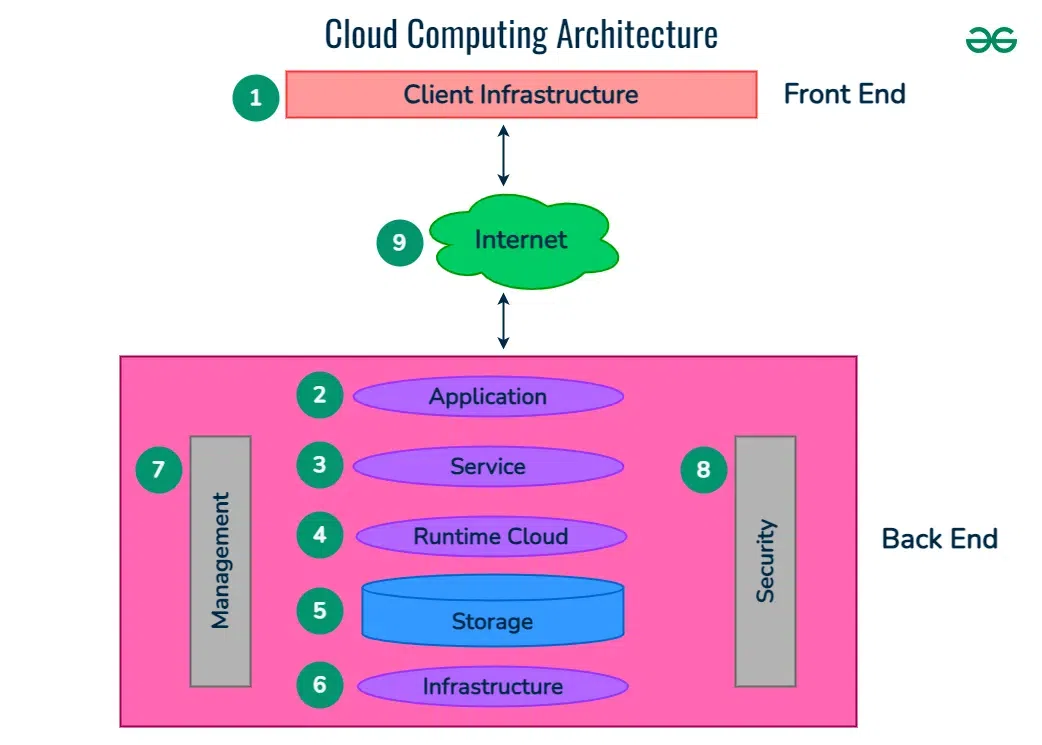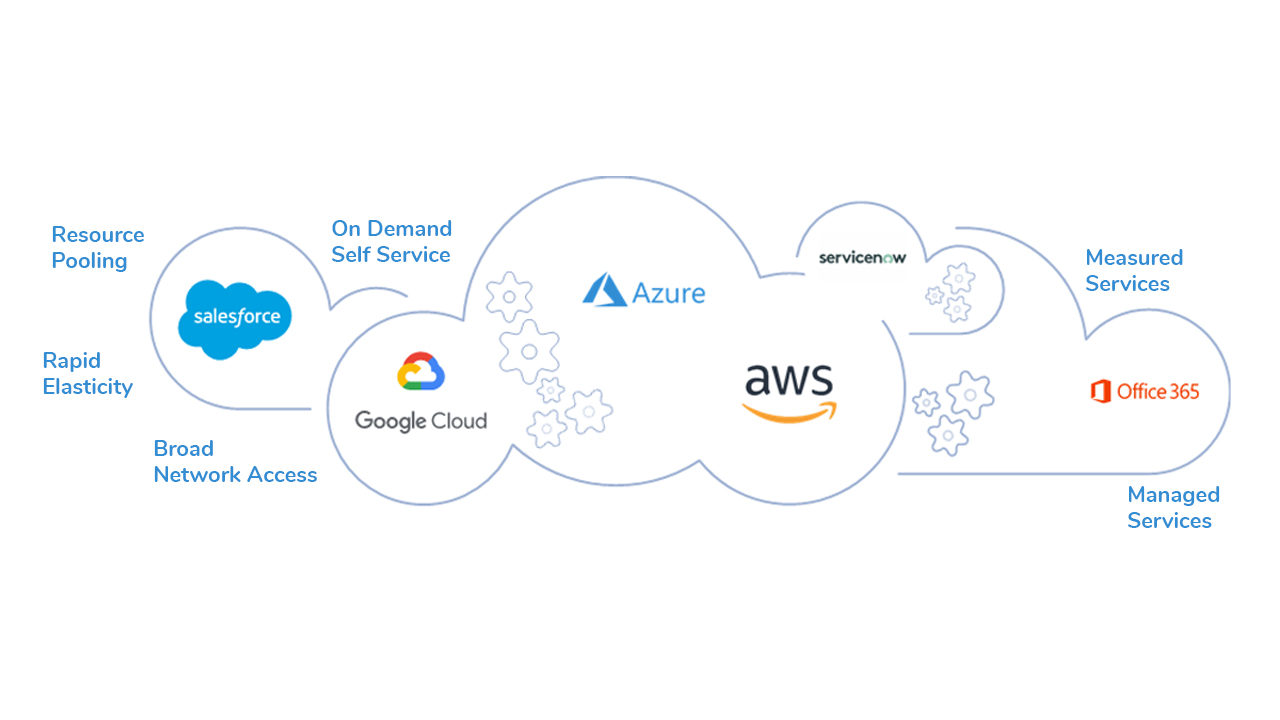A Comprehensive Introduction of Cloud Providers and Their Influence On Industries
Cloud services have become an important component of contemporary service operations, transforming the way industries feature and engage with technology. From scalability to cost-effectiveness, the advantages are obvious, but what really sets cloud services apart is their ability to customize solutions for particular market demands. As we browse with the intricacies of cloud services and their effect on numerous markets, it is necessary to check out the nuanced applications, address difficulties, and anticipate future fads that will form the landscape of industries in the coming years.
Advancement of Cloud Services
Over the past years, the evolution of cloud services has actually transformed the means companies and people gain access to, store, and manage data. Originally, cloud solutions largely offered storage space solutions, enabling customers to upload and get information from remote servers. As technology advanced, cloud services expanded to include a wide range of offerings such as Software application as a Solution (SaaS), System as a Solution (PaaS), and Infrastructure as a Service (IaaS)
The development of cloud solutions has made it possible for organizations to scale their procedures extra successfully, as they no longer need to invest in expensive physical facilities. This scalability allows companies to adapt to changing demands quickly and without the constraints of conventional equipment constraints. Cloud services have actually facilitated international cooperation by supplying real-time accessibility to data and applications from anywhere with a net link.
As the need for cloud solutions remains to grow, suppliers are frequently introducing to supply improved functions such as synthetic knowledge, machine discovering, and information analytics. The development of cloud services has absolutely transformed the digital landscape, equipping services of all sizes to run more flexibly and competitively in today's dynamic market.

Benefits for Services
With the raising adoption of cloud services throughout markets, services are experiencing a myriad of benefits that improve their operational efficiency and competitiveness. One of the essential benefits for companies is price financial savings. By utilizing cloud services, firms can considerably decrease their IT framework prices as they no more need to invest in pricey hardware, maintenance, and upgrades. Rather, they can register for cloud services on a pay-as-you-go basis, permitting far better budget plan administration and scalability.
Additionally, cloud services offer durable information safety and security and back-ups, making certain that vital organization information is secured from possible dangers and calamities. In general, the fostering of cloud services empowers services to simplify their procedures, introduce more efficiently, and get a competitive edge in today's hectic service landscape.
Industry-Specific Applications
As services harness the price savings, adaptability, and boosted safety and security offered by cloud solutions, they are significantly discovering industry-specific applications tailored to maximize their operations and drive innovation. Cloud services are changing various industries by providing specialized solutions that cater to particular needs and difficulties. Retail services utilize cloud services for stock administration, individualized marketing techniques, and seamless omnichannel experiences for customers.
Difficulties and Solutions
Exactly how can organizations effectively navigate the difficulties presented by the integration of cloud services right into their operations while making best use of the benefits they offer? Among the main obstacles dealt with by companies when taking on cloud services is information safety and security and privacy. Turning over go to this web-site sensitive details to a third-party company calls for durable protection procedures to protect versus data breaches and unauthorized accessibility. To resolve this, companies have to carry out file encryption protocols, accessibility controls, and routine safety and security audits to make sure the defense of their information.
Another substantial difficulty is ensuring seamless assimilation of cloud services with existing IT facilities. Compatibility issues, data movement complexities, and interoperability problems can impede the smooth transition to the cloud. Services can overcome this obstacle by carrying out comprehensive compatibility assessments, spending in integration tools, and giving extensive training to staff members to effectively use the brand-new cloud services.
Furthermore, expense monitoring and scalability present challenges as services aim to maximize their cloud use while controlling expenses. Carrying out price monitoring tools, using scalable sources effectively, Read Full Article and regularly reflecting on cloud usage can help organizations strike a balance between cost-effectiveness and scalability. By proactively attending to these difficulties with critical solutions, organizations can harness the full possibility of cloud services to drive innovation and development.
Future Trends and Innovations
In the middle of the continuous advancement of cloud solutions and the critical for services to deal with obstacles such as data security and combination intricacies, the landscape of future patterns and innovations in cloud modern technology is poised to form markets substantially. Organizations are identifying the advantages of leveraging multiple cloud providers to boost scalability, flexibility, and strength.
Moreover, the surge of side computing is readied to transform cloud solutions by bringing information processing closer to the resource of data generation. This shift promises low-latency handling, improved bandwidth performance, and improved real-time decision-making capabilities. As industries remain to produce huge amounts of data, edge computing will certainly play a vital role in making it possible for much faster activities and insights. In addition, the integration of expert system (AI) and artificial intelligence (ML) modern technologies into cloud services is anticipated to enhance procedures, boost customization, and drive advancement throughout numerous fields. By harnessing the power of AI and site link ML, services can open new opportunities for automation, predictive analytics, and client involvement.

Conclusion
In final thought, cloud services have revolutionized industries by providing scalable, cost-effective services for services. The advancement of cloud solutions has actually paved the way for industry-specific applications, providing tailored remedies for numerous fields.
As modern technology progressed, cloud solutions increased to consist of a large array of offerings such as Software program as a Solution (SaaS), Platform as a Service (PaaS), and Framework as a Solution (IaaS) linkdaddy cloud services.
In addition, cloud services offer durable information safety and back-ups, making sure that essential business information is secured from possible threats and disasters. Generally, the fostering of cloud services empowers companies to enhance their operations, innovate extra efficiently, and gain an affordable edge in today's busy company landscape.
One of the main challenges encountered by companies when taking on cloud services is information safety and privacy.In the middle of the ongoing development of cloud solutions and the vital for businesses to attend to challenges such as information safety and security and assimilation complexities, the landscape of future fads and advancements in cloud technology is positioned to form markets dramatically.